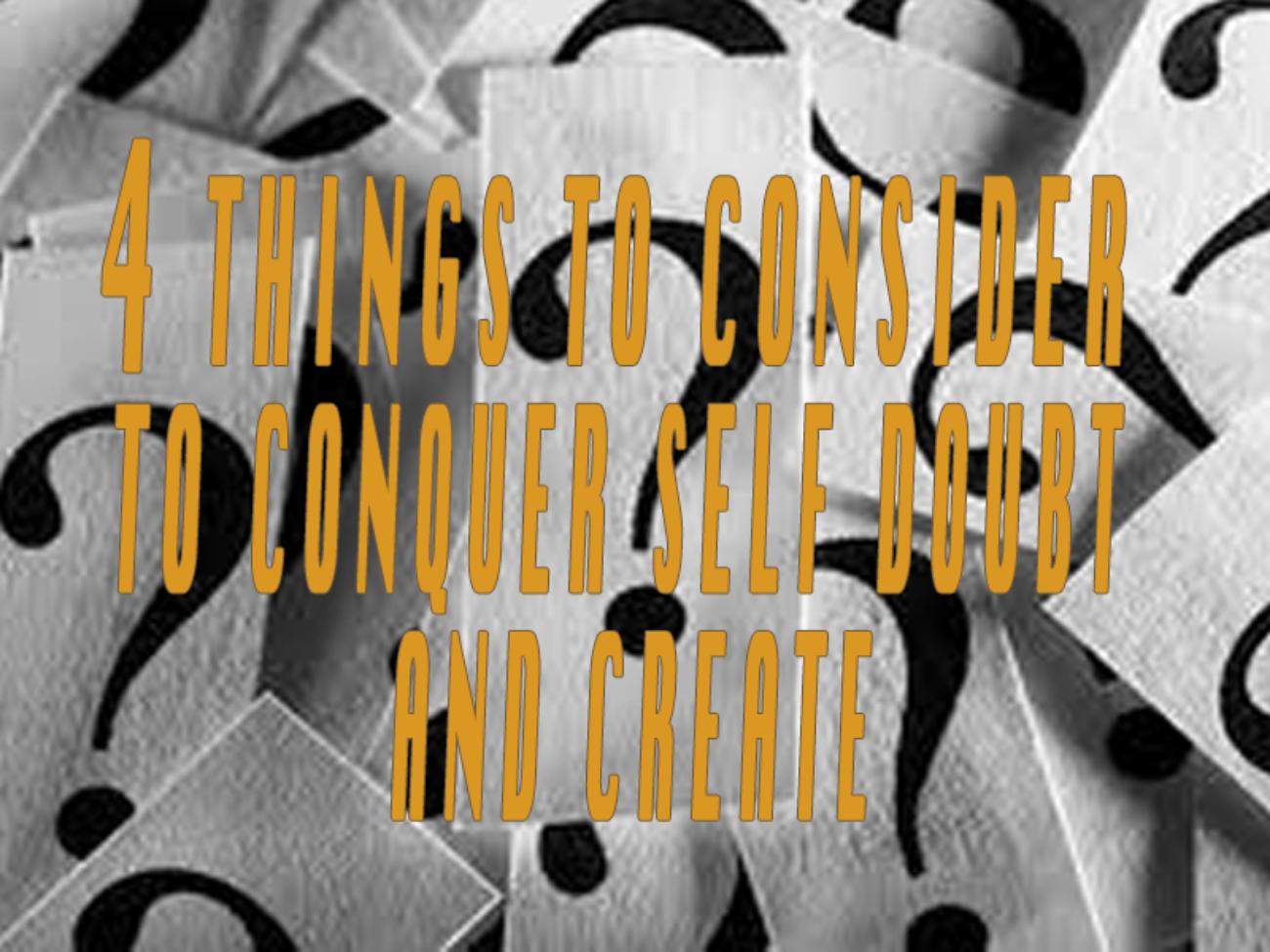Achickwitbeatz presents the Instrumental Intel podcast, bringing you information instrumental to your artistic career including music industry news & tips, insights & interviews, and beats for your inspiration. Listen on Saturdays at 7 pm EST on Grander Radio and Achickwitbeatz.com.
Follow on Facebook, Instagram, Twitter, YouTube Audiomack & SoundCloud, and subscribe on your favorite podcast platform. Download the Grander Media app to listen to Grander Radio on the go.
- Art
- Independent Labels
- Internet Radio
- Music Documentaries
- Album Reviews
- Music History
- Music Industry News
- Free Game Friday
- Free Downloads
- Poetry
- Books
- Interviews
- Did You See It?!
- Hip Hop History
- Hear Here
- Music News
- Hip Hop Documentaries
- Music Marvels Radio Show
- Think Piece Thursday
- Mini Documentaries
- Instrumental Intel
- Music Humor
- Indie Analysis
- Conversations & Quotables
- Music
- Resources for Artists
- Podcasts
- Beats/Instrumentals
- Music Education
00:00
Hey, thank you for tuning in to Instrumental Intel. I'm your host, music producer at Achickwitbeatz. And I've got another episode that's got music industry news, instrumentals by me for your inspiration. And later I'll be joined by my special guest, TIGmatic. And we're gonna talk a little bit about turning ideas into impact among many other things. So it's going to be a great time. But before I go ahead and drop that first beat, I'd like to give a shout out to my home station, Grander Radio out of Grand Rapids, Michigan. And with that,
00:30
Let's go!
[BEAT BREAK]
14:30
Alright, I'm back with a music biz brief. First up, Live Nation has invested in Breakr, a creator marketing platform that connects music labels, brands, and agencies with independent content creators for promotions. As part of the partnership, Breakr is launching BreakrPay, an instant payment system that eliminates long wait times, ensuring creators get paid in real time. Founded in 2020, Breakr has worked with major labels like BMG and Sony Music and expanded into brands like Samsung and Hershey.
14:58
The investment comes through Live Nation's Black Lily Capital Fund, which supports Black-founded startups in the live music ecosystem. Next, Sony Music reported a 14% revenue increase in the third quarter of fiscal 2024, reaching $3.2 billion, primarily driven by streaming growth in recorded music and publishing. The music's division operating income rose 28% to about $640.4 million, highlighting the impact of Sony Music's assets.
15:27
In light of rising streaming revenues, Sony has adjusted its full-year forecast, now anticipating $86.8 billion in sales. Okay, and Universal Music Japan has acquired a majority stake in A-Sketch, an independent label and management firm, home to artists like Saucy Dog and Flumpool. The deal sees Universal buy in and out of Muse's stake and aims to expand A-Sketch artists internationally.
15:51
Meanwhile, Warner Music is also pushing into the Japanese market, signing a global deal with boy band Psychic Fever to build on their success in Southeast Asia and the US. Alright, many news stories have kinda dealt with this, but streaming platforms of course are looking for new ways to charge listeners more. Spotify is developing Music Pro, a pricier tier with higher quality audio, concert tickets, and song editing tools, expected to cost about $6 more per month.
16:19
Apple and Amazon are also exploring premium tiers, while Warner Music is considering its own app for superfans. With US recorded music sales growing at their slowest rate in history in nearly a decade, major players are searching for ways to keep the revenue flowing. Next up, OpenAI is facing piling up copyright lawsuits worldwide with the latest coming from India where record labels like T-Series and Saragama are challenging the company's alleged use of copyrighted music in AI training.
16:47
This follows similar cases that book publishers, news agencies, and Germany's Gemma over the unauthorized use of lyrics. OpenAI argues fair use, but recent legal rulings suggest tougher scrutiny on AI-generated content. And speaking of AI and music, the EU's AI Act has left a major copyright gap putting musicians and other creatives at risk. This is according to Axel Voss, a key architect of EU copyright law.
17:17
The block is favoring big tech by failing to regulate how generative AI models use copyrighted works. With no clear enforcement mechanisms, artists have little recourse if their work is used without their permission. Alright, Congress is once again debating whether US AMFM radio should pay royalties to recording artists and labels. The American Music Fairness Act seeks to close a loophole that lets radio stations use music without compensating artists.
17:47
backed by broadcasters, wants to keep things status quo. The music industry argues that radio stations should pay for recordings like they do in most other countries, while broadcasters claim AirPlay is free promotion. The outcome could impact both US and international artists, as some foreign royalties depend on reciprocity. And finally, a new app called Mashup has launched in the US, allowing users to create real-time mashups of popular songs without professional music skills.
18:16
Available on iOS, the app has secured licensing deals with major labels ensuring artists are compensated. Mashup offers free and premium tiers with features like tempo adjustments and a social discovery platform. Industry leaders praise its balance of fan creativity and artist rights, positioning it as a more interactive alternative to traditional streaming. Alright, and that's it for this week's music biz. For brief, I'm going to take a quick pause for the cause and then I'll be back with my special guest, Tigmatic, right after this.
18:45
Keep it locked!
[BEAT BREAK]
31:05
Hey, I'm Achickwitbeatz, multi-genre music producer and strategist to indie artists and labels. Visit achickwitbeatz.com for resources for artists and instrumentals in various genres available for songs, blogs, blogs, podcasts, themes, TV, film, commercials, and more. Once again, that's achickwitbeatz.com. That's A-C-H-I-C-K-W-I-T-B-E-A-T-Z.com Let's make something happen.
31:35
Hey, thank you for tuning in to instrumental intel. I am your host, music producer, Achickwitbeatz. And today I'm excited to say that I have in the virtual building with me Tigmatic. Man, he's an artist, a producer, engineer, podcaster, among many things. But first of all, I want to thank you for taking the time to come and share with me my guest.
31:59
And if you could just kind of let people know who you are, how you got involved in everything that you're doing. Okay. Well, first of all, thank you for having me on this show. I appreciate it. And you did awesome on my show. Thank you. So thank you for giving me the same opportunity to be on yours. Hello world. My name is Tigmatic. I am a plethora of things. I am
32:30
a CEO of Damani Brand LLC. I am owner of the pot podcast with TIGmatic and Stirring the Pot with TIGmatic podcast. I'm also a engineer, like you heard Achick said, and I'm a producer as well. And I'm an artist as well.
32:58
Well, thank you for giving us the rundown. As far as music goes, who would you say were some of your early inspirations? Oh, there are so many, but my ultimate inspirations of where it started was really Rakim. I would say Rakim.
33:22
Uh, I would say LL.
33:26
I would say Busta Rhymes. And then as in times, you know, as time evolves, there are other people who are inspirational. Will Smith is a big one as well. So I'm from Philadelphia. So I had Beanie Segal as an inspiration, Eve, Meek Mills, Cassidy, Gilly.
33:52
They were a lot of people, and Freeway as well, they were all the main ones who were very instrumental with my artistry as far as a rap artist. And now as far as a producer, oh man, Timbaland, Pharrell, like you, Pete Rock, Premier, Dr. Dre, and
34:22
I would say Quincy Jones. Hmm. Man, you got some heavy hitters in there. Yeah, we do share a lot of the same. But yeah, so okay. Kind of want to back up to what you had mentioned about who your top were for or as an artist. If you could talk a little bit about Rakim, like was there a specific song of his that did it for you that made you a Rakim fan? Like what kind of sticks out in your mind most or?
34:52
If you were to introduce... I ain't no joke. Okay. You said this flat out. Yeah, I ain't no joke. That's the God MC right there. Yeah. Oh, seeing the interview clips like where he's talking about how he played the saxophone and he tried to use his voice like that, you know, kind of fitting in different rhythms, kind of like how jazz does. Right. It's like, man, that's just an insane concept to have at such an early age.
35:22
Yeah, he's a genius. Yeah. From another planet until this day, even until this day, he's an influence for me as far as no matter how old you get. Hmm. Keep going. Yeah. You know, there's like this big stigma and rant where it's like, Oh, you're in your forties or you're in your thirties, hang it up. You know, and we're seeing throughout the Testament of time that
35:52
the biggest artists are older as far as rank are older than everyone else. So yeah, my husband and I caught the rock, the bells during the cool days, the force tour in Detroit and oh my gosh, I mean those shows, they had so much energy, like it was just, I'm glad that they didn't let that stigma stop them from still rocking because
36:19
man, to see some of those great giants in person, like it was just beautiful. But yeah, you never hear that in any other genre. That's true. Yeah. And I think that's, like in our community and the black community specifically, you hear this a lot because a lot of the time, people in our own community aren't consistent with the things that they do. So when they see someone being consistent.
36:48
is like, well, why are you still doing it? Wow. And that's because we don't really see the consistency like that in our community when we shouldn't be community-based, pushing everyone to reach their full potential. Oh, man. That is some nuggets right there, some serious wisdom. I never looked at it like that. Yeah. But that makes perfect sense. Yeah. I'm a big advocate for a.
37:18
for seeing our people thrive and succeed. I'm also a activist as well for Black Lives Matter grassroots as well. So it's something that I'm passionate about seeing our people succeed and thrive and fighting justice as well. So I'm pretty big on that. Yeah, so okay, if you wanna talk a little bit more about your podcast.
37:46
And, you know, activism is important and then you keep up with important topics and giving people a platform to speak. Uh, can you talk a little bit about your shows? Sure. Okay. So the pot podcast with TIGmatic, well, that's the show that's mental health based and we talk about the struggles artists go through artists, not just artists though, artists, businessmen and women, activists or whatever.
38:16
the struggles they go through while having to entertain the world or pursuing their career. So we talk about, you know, how people got started into whatever it is that they do and the obstacles they faced along the way and how they overcame them. So when we talk about these things, you know, we have deep discussions. Sometimes people share some traumatizing stories of things that happen to them.
38:46
Others, you know, aren't as open, but they share enough, you know. So the whole goal is to serve as an inspiration to the youth and the older generation so we can have conversations between the old and young. Yeah, that's so important. So, yeah, I mean, it's one thing to kind of say that you care about these things, but the way that you've put all these in motion is just really inspiring.
39:15
I appreciate that, queen. I appreciate that. Yeah. So, you know, it's always refreshing to hear about when creatives give back. So, you know, yeah, if you could maybe talk a little bit about how the activities that you're involved in influence the music that you make. Well, that's where it's a little, a little tricky, right? So, my music.
39:44
is the new music that I have about to come out now is going to reflect that. But the old discography, it does not reflect that. And I'll explain why. OK. So at one point in my life, I was in the streets, you know, and I was doing what street people do. You know, we don't need to go into deep, too deep in the detail. But, you know, I was doing what street people do, you know.
40:14
living my life and doing whatever I wanted whenever I wanted. And, and, uh, life changed for me drastically when, uh, I was shot in the head. So I was shot in the head and, uh, I got on the operating table. And when I was dead, you know, I guess for however long I was dead, within that time I seen the other side, you know, and, uh,
40:43
It's nothing like people make it out to be, you know, like, it's this old sweet thing and it's really not. If you weren't living a life that was crazy, you will not go up top. You will go to the bottom. Please believe me. I just wanted to throw that out there for people, but, but yeah, you know, uh, but I was like stuck in this room in that moment.
41:10
And I saw my grandmother who was there for two years already. And she told me I didn't belong here. And when I woke up, I told my folks, everybody was around me. I told him I just saw grandma. And from that moment on, I had made a a sacrifice, if you will, because I'm also a husband and father. I said to myself that I would change my life.
41:38
You know, that was the key. Now for me, it took quite a while for me to change my life because I'll be honest, I did not change right away. I went right back to some of the things I was doing, you know, and, you know, it took a while for me, but within that time, things started to gradually change. It took me about seven years though, because I still wasn't over the fact that somebody tried to kill me.
42:08
Yeah, I mean, that's, I can't even imagine what type of trauma that has to cause, you know? Right, I was diagnosed with high level PTSD and I still have it to this day. So in my music, the trauma that I was going through reflected in the music, you know, all the thoughts that I was having.
42:36
you know, all the things that I spoke on, it was, some of it was violent, some of it wasn't, you know, but whatever mood I was in in that moment, that's how the music will reflect. Now the music now, I'm more chill, I'm more like a party type rapper or talking about, you know, activism or more about business and music. Okay.
43:06
So for this new album that I'm planning on dropping soon called I'm Chosen.
43:14
will reflect that in the music. Now, I'm guessing based off of what you shared with us, we've got a good idea of why you called it that. Do you have anything else that you wanna share about the project regarding that aspect? Well, yeah, sure. So I'm chosen, I chose the title I'm chosen because I feel like God gave me a second chance at life and he has to choose to give you that.
43:44
Absolutely. You know what I'm saying? So for me...
43:50
died, I saw what hell looked like, I saw what purgatory looked like, and then I woke back up to earth, right? So I say I'm chosen because not only was I chosen to have a second chance at life, but I also was chosen to make an impact on other people's lives other than my own. So that's how I look at it.
44:19
Man, that's incredible. Thank you so much for sharing that. How you recognize how it was reflected in your music and then the changes now. Since you've been, I guess, doing music from the early start till now, what are some of the biggest changes that you've seen like in the industry? Well, some of the biggest changes that I've seen and
44:48
the industry is cadence for one. Everyone is wrapping to the same cadence. Everyone, even the old G's, except like, you know, like the rock hands, LL, he didn't switch to the cadence of today now too. So I'm being real. But LL kind of still stayed true to his roots too. He just wanted to show that he could do what they do and stay to his true core. But.
45:18
Um, yeah, you know, I see in the industry, everybody is, is really just following the same cadence and, uh, there's not a lot of creativity going on. Everyone's, uh, rapping to the same BPM, which is like one 30. So, uh, there's, there's no longer, uh, that vibe of people wanting to rap to a 94 or 84 BPM or, you know,
45:46
It's just this rhythmic bounce that everybody wants to have on every track. Yeah. So I see that as a change. I also see that there's more independence. There's more independence. A lot of people are running away from labels because, you know, they're not really getting paid the way that they should, you know, and a lot of things are digital. So streaming is a whole different.
46:15
monster within itself and I would advise people to not even have a Spotify because I have one as well but I would tell people not to have a Spotify and just have your own website and build your own fan base that way because they're not going to pay you what you deserve. Absolutely Matt. So yeah so I see that as a big shift and change as well. Yeah um
46:41
Yeah, those are some heavy ones that don't really get talked about that often. So, yeah, thank you for sharing those and your perspective on those. So, yeah, one of the things you mentioned is people going independent. What do you think? I guess I'm surprised at how much kind of has to get signed over these days that are just a part of the deal compared to even some of the bad deals that were made back in the day.
47:09
So like now you got the 360 deals on top of, you know, NSLs and all this other stuff. Like, could you have imagined back then that it would be as complex as it is now? No, no. And that's because I think it really has to do with more of, back then the labels had more control of the artist's creativity. And today with the independent artists, they are in total control.
47:39
of their own creativity and their own fate as well. So there are pros and cons to it, but I really look at it like, if you're a person who's out there trying to really push for success and take your destiny in your own hands, then you have to be able and ready to have everything that's necessary. And that's the funding you need, that's the marketing strategy, you know.
48:09
it's the know-how of the business and the consistency with work. Mm. Yeah. That's a great list. Yeah. I see that. I see that as, as I look at, you know, the grapes, like when we look at people like Jay-Z, we look at people like Nas, we look at people like Q-Tip, Killer Mike, Outkast.
48:37
If it's one thing we can say about these guys, right? They were consistent, no matter how much times changed or evolved. No matter what it is that they did, even if it wasn't rap in the moment, they stayed consistent in whatever it is that they chose to do. So I think that's key for any element, for any musician, producer, or artist is consistency. Yeah, that's so important.
49:07
Yeah, how do you recommend that they stay motivated to remain consistent for anybody that might be struggling with that? Well, take care of your mental health for one.
49:20
Uh, I feel as though that for us creatives, if our mind is healthy, everything else will flow. Um, and that's one of the sharpest, that's your biggest and sharpest tool that you have when it comes to being a creative. Keeping your mind sane and well so that you can produce at a high rate. So that's one thing I would say. Another thing that I would say is, uh,
49:49
You know, sharpen your tool, you know, which is your craft. You know what I'm saying? Like stay good at your craft, you know, constantly work on your craft and whatever you lack or, or whatever you're weak at, continue to work at it to get stronger. Absolutely. That's great advice. So yeah, what would you say, you know, out of everything that you're doing, um, may have been the most.
50:19
rewarding project or moment in your career so far.
50:24
The most rewarding part of my career was when I got to meet the honorable Dr. Cornell West, meeting Dr. Cornell West, meeting Dr. Malina Abdullah, was a really prolific moment for me in my career, not just as a journalist or podcast host, but, but just as a person in general, in general, you know,
50:51
You know, Cornel West is someone who's been around for 50 years, pushing for civil rights, the civil rights of our black and brown people out here. And for me to meet him, to have conversations with him, to be able to call him or text him. The same for Dr. Abdullah, you know, those things. They are pretty special. Also to.
51:21
meet my business partners, Fabian and Kaia B. Those are prolific things to have sponsorships and build relationships with people along the way. So I would say those are the things that I highlight in my career that I think are pretty dope. Wow, well, they are definitely. And I think serve as great motivation for others as well. Absolutely. Yeah, so.
51:49
You know, if you want to talk about like the early days of when you were doing music, that compared to now, just as far as production, how would you say things have evolved for you? Oh, they evolved a whole lot. Oh man, listen, and we spoke about this a little bit yesterday, Queen, when you were on my show.
52:14
When I first started, my friend Dublin the Boss of Lions Den Records, shout out to him, he had a DR-770. And for those that don't know, that's a beat machine. It's a very small beat machine box. And you would touch the pads and make the beats. And then he would make the melodies on the keyboard and I would come up with a melody. He actually showed me how to make beats.
52:42
And then also I had another mentor. His name is Smuck of no ID in Philadelphia.
52:52
Back then, my engineering sucked. Even recording other artists, right? You know, I was the worst. Like, I didn't know how to level good. And you know, versus now, it's a total different thing. You know, I know how to mix, I know how to master. I can make a beat within minutes. You know, all of that stuff, it's, you know, everything that I was taught, I took, and I just evolved over the years. Now...
53:19
Granted, I don't get to make beats as much as I used to, but I still do. Because I've been doing this podcast, but everything that I've learned has honed me to be a better communicator with people. It's helped me be able to listen and not just speak because I had...
53:44
issue with that for a long period of my life. I actually do still do from time to time. We keep it all the way funky, you know. But it's helped me to learn about myself and learn it's helped me learn how to push myself to be better as well. Wow. Yeah. Yeah. What a dope sentiment.
54:10
Yeah. Okay. As far as working with others and approaching people for collaborations, whether it's as an artist, producer, or even with guests on your podcast, how would you say that you approach those and what do you typically look for in your collaborators? Okay. As far as music wise, I'm a Philly boy, born and raised. I'm from South Philly to be exact.
54:40
For me, I'm not shy when it comes to speaking to people and I know I wanna work with them. So I just slide in they dim or give them a call like, yo, it's time to drop something, let's drop something. Just like I did with you, let's make some music. Yeah. You know what I'm saying? Let's lay something, like let's put something together. And...
55:02
I'm a firm believer in closed mouths don't get fed. If you don't speak, you can't get what you're looking for, right? Right. But as far as collaboration with people,
55:19
With music is that way. Now, as far as the pod, it's a little bit, it's a little bit different because not only do I explain what my show is about, but I also explain my story as far as I go in a, you know, deeper contrast of, you know, what happened to me, how it happened to me and why the show was started.
55:43
Yeah. Okay, yeah. Well, yeah, again, I just want to thank you so much for taking the time out to be on instrumental intel. You've shared so many gems and dropped so much wisdom. So yeah, I think before I hand over the spotlight for you to be able to drop your socials and all that good stuff, if you could, like you shared a lot of information about some of the things and stuff that you've been through.
56:12
But before we segue into that, if you could just talk a little bit about how you handle creative blocks or maybe low period of inspiration, like kind of how we talked before about staying motivated, some personal techniques that maybe you've used to help you through that. All right, all right. This is like the question I asked you yesterday. Yeah. All right. So yeah, all right. So for me, you know, like I said,
56:40
before for those that are just tuning in y'all, y'all need to go watch the interview with Achickwitbeatz. She was popping on the show, y'all. But yeah, so for me, it varies, right? So for me, if I start a beat, sometimes I could make a beat in five minutes. Sometimes like I said before, I might have the drums, but I don't have the melody and I get stuck there.
57:06
or it'll be the other way around. I have the melody, but I don't have the drums. I'll get stuck. Sometimes I might leave it there, come back to it. I might go play the game or something, or go create some clothing, come up with some designs for the clothing that I make and stuff like that, and try to draw inspiration from there. Or I might just listen to instrumentals and rap to them just to come up with a concept as well.
57:36
Um, so those are like things that I do sometimes to, to sharpen my sword as far as those things. Okay. Yeah. Yeah. Well, again, thank you so much for sharing. And I just want to make, want to make sure everybody knows where they can find you, follow you, check out your music, check out all your podcasts, everything you got going on. All right. So if you want to follow me on Instagram,
58:05
I have two Instagrams. The first Instagram is TIGmatic, T-I-G-M-A-T-I-C. The second Instagram is the underscore pot underscore with underscore TIGmatic underscore. Facebook, you can find me on Matic Whitaker, M-A-T-I-C, W-H-I-T-A-K-E-R.
58:35
Uh, you can also follow me on my Facebook group, the pot podcast with Tigmatic starring the pot with Tigmatic. Uh, and also starting the pot is the show where we just talk music. We, we just talk music or whatever topic is booming in the moment. So, uh, you can also catch episodes there. You can catch me on Facebook, YouTube, LinkedIn as well. And, uh, Odyssey, Apple music.
59:04
Dollar Radio, Power 105.1, and Going in Radio, which is my station. All right. Well, thank you so much. Once again, I appreciate you for coming on and I hope this is just part one of many and that I can have you back sometime again soon in the future. Oh, I'd love that. Absolutely. Thank you for having me and thank you for taking the time to interview me. This was awesome and I can't wait to do it again. Likewise.
59:33
Alright, and that's a wrap for this episode of Instrumental Intel. I've been your host, music producer Chick Whitbeats, and I want to thank you again for tuning in. I'd like to thank my special guest TIGmatic for coming through, dropping some wisdom and gems. And of course, I'd like to thank my home station Grander Radio out of Grand Rapids, Michigan. Make sure you come back next week. I got more goodness lined up for you, so until next time, you know where to find me. Tune in, tell a friend. I'll see you then. Peace.
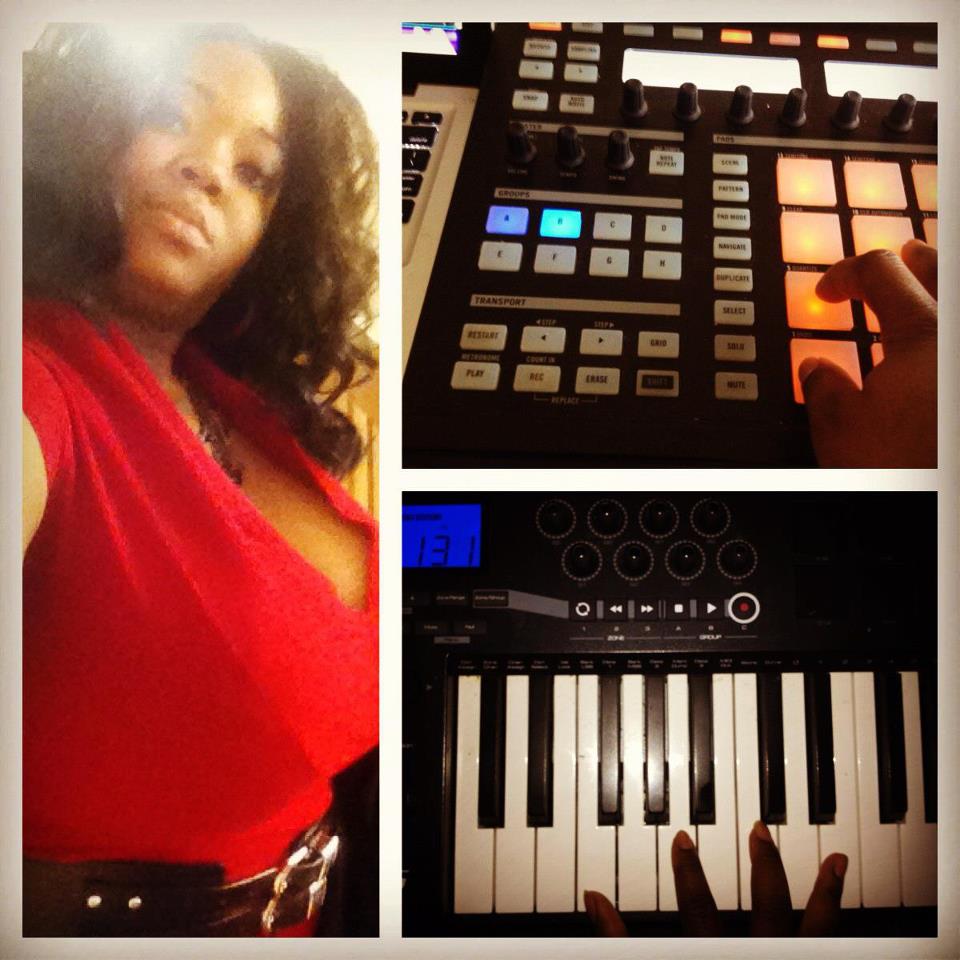
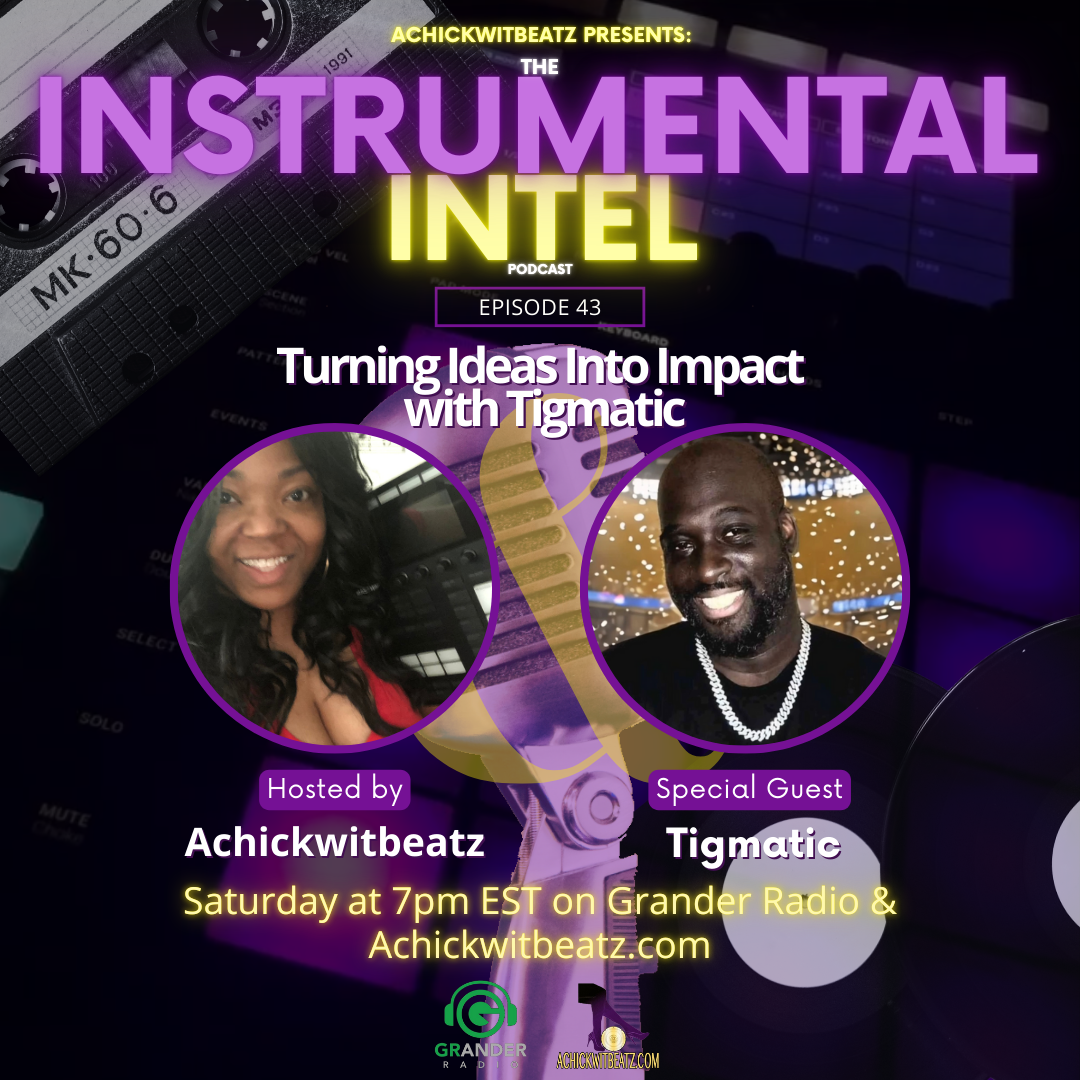






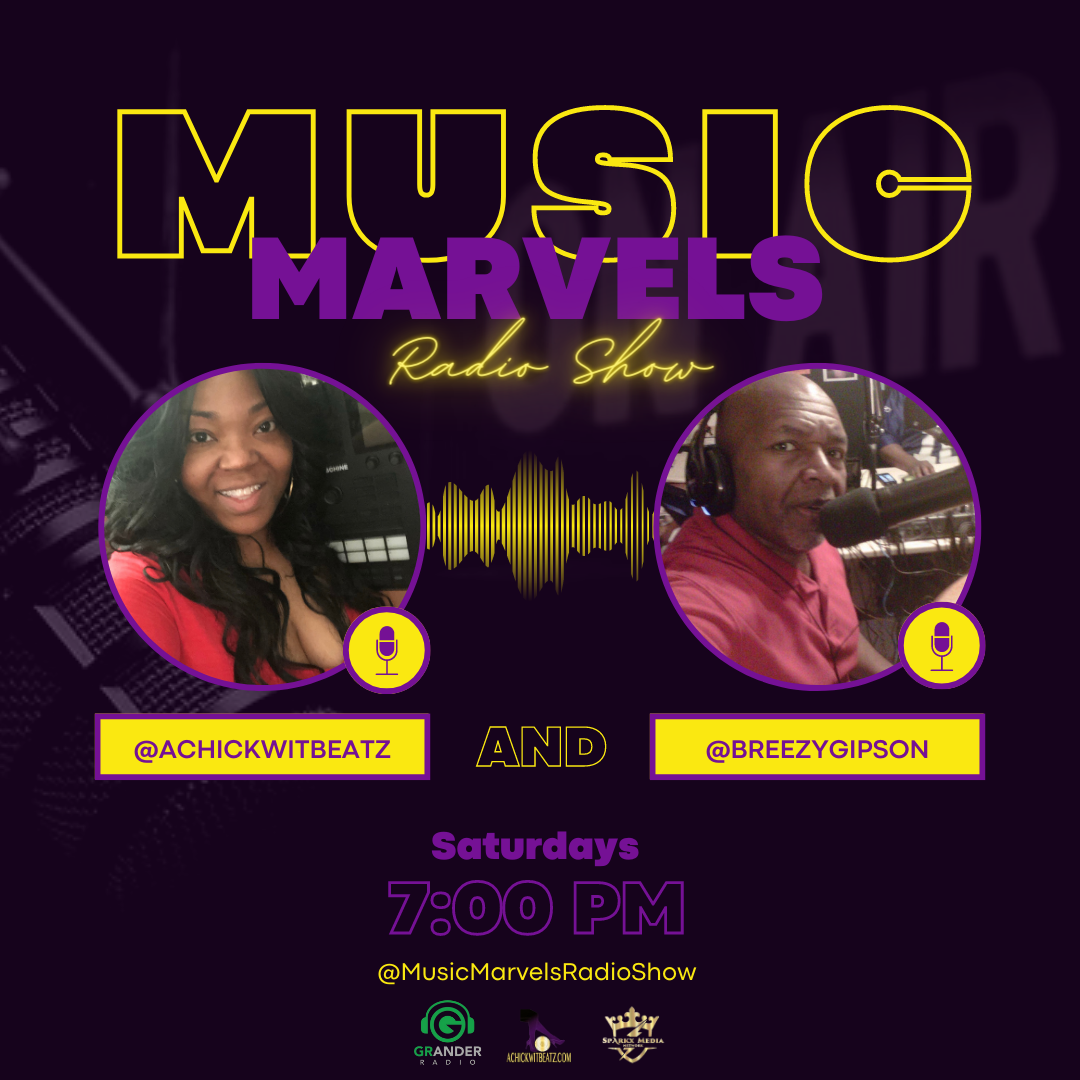
![Hear Here: Achickwitbeatz - Dopamine & Serotonin [Single]](https://images.squarespace-cdn.com/content/v1/52b0b90ae4b0293bfed0d692/1710852808557-EZYGFDIBHLBSIRFOVS1Q/Dopamine+%26+Serotonin.JPG)


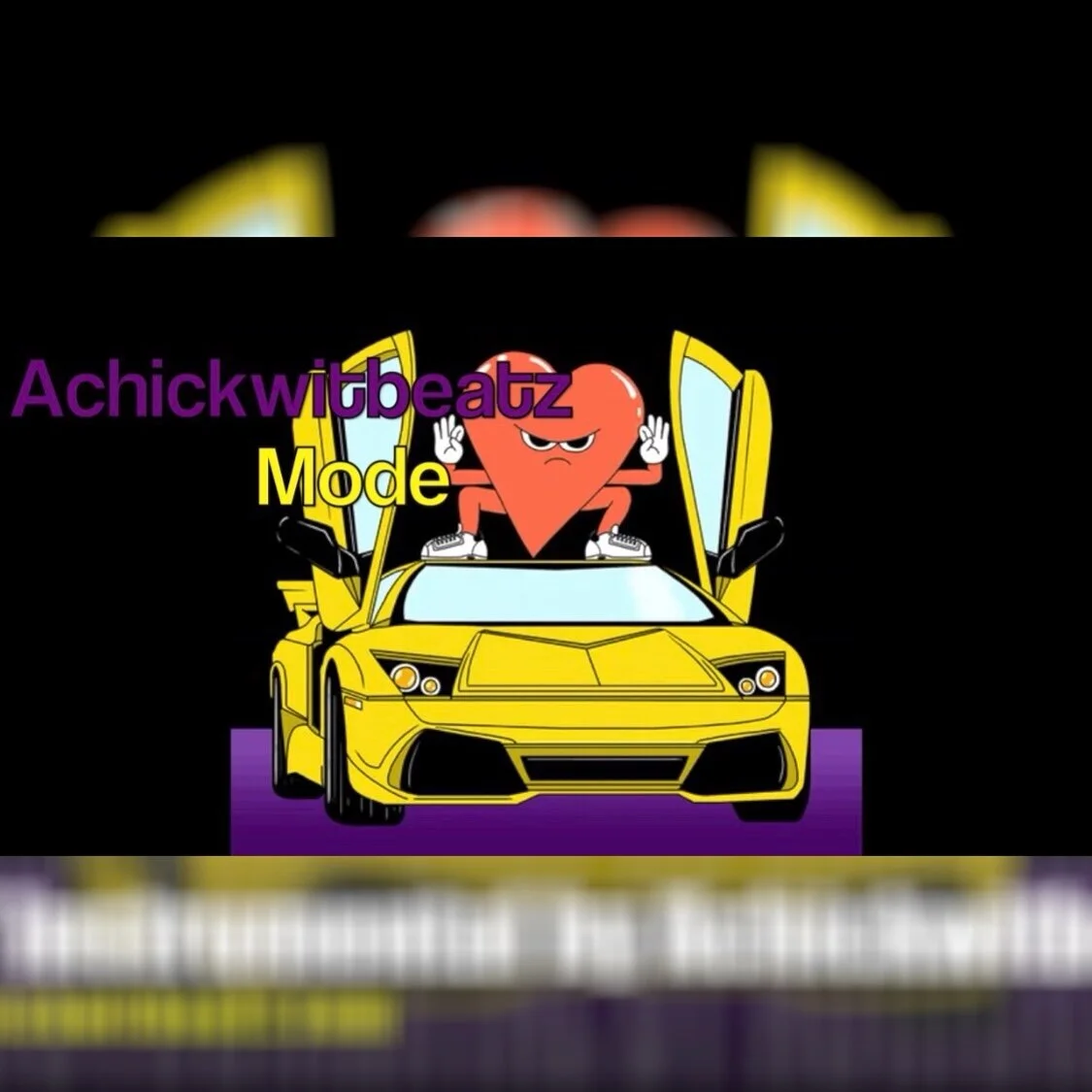
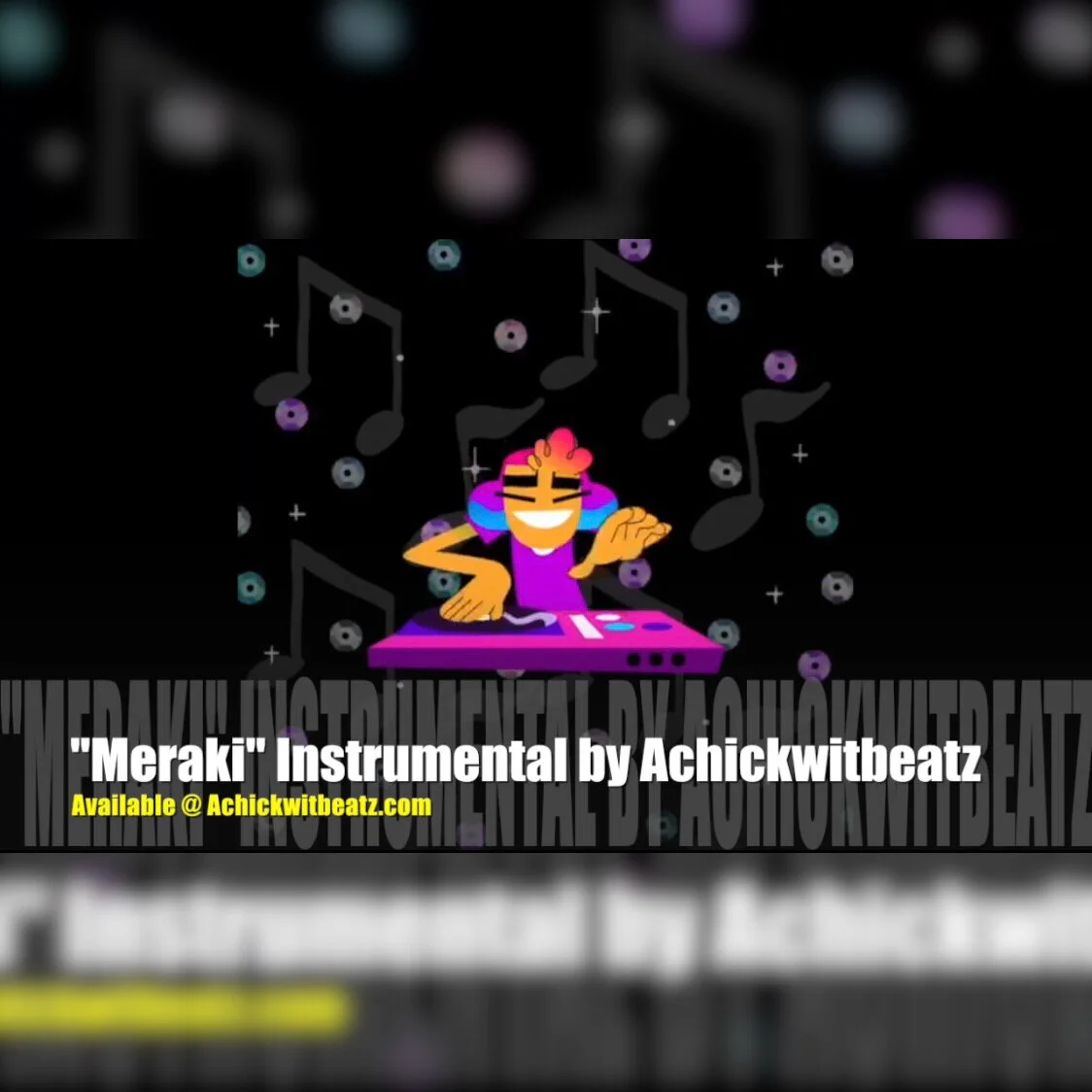





![Hear Here: Dagga Man- "Analytics" [Prod. by Achickwitbeatz]](https://images.squarespace-cdn.com/content/v1/52b0b90ae4b0293bfed0d692/1584638158548-9R55AZLWZIDFJC8LATV6/IMG_2212.JPG)







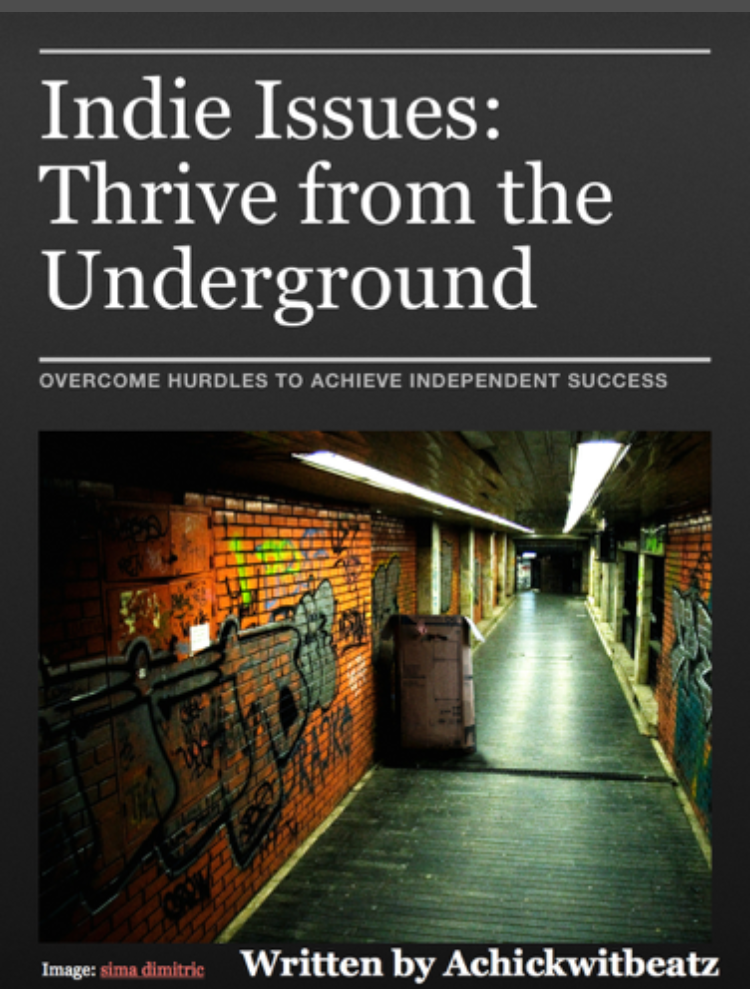
















![Making Music on a Budget [Infographic]](https://images.squarespace-cdn.com/content/v1/52b0b90ae4b0293bfed0d692/1582844361438-3JTE5NT3EL51FHXC0WJI/making-music-on_1929722%25281%2529.jpg)
